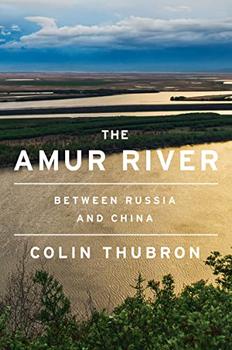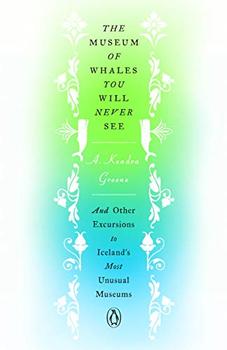Summary | Excerpt | Reviews | Beyond the book | Read-Alikes | Genres & Themes | Author Bio

A Village Called Wasteland and the Transformation of Rural China
by Michael MeyerDon't let a name fool you. The village might be called Wasteland, but it belongs to one of northeast China's most fertile floodplains. Known for a special variety of rice so famous it even touts a winning stamp of approval from the Chinese premier, the tiny hamlet in the country's Manchurian tundra is where intrepid journalist Michael Meyer bases his non-fiction book, In Manchuria.
Meyer, who first worked in China as a Peace Corps volunteer, has enough of a reason to be drawn to this remote village in the freezing Manchurian plains: his wife was brought up in Wasteland before eventually moving to Beijing and meeting him, her future husband. As the book opens, Meyer has been working for Wasteland's middle school as a teacher of English, sharing meals with his wife's extended family in town and being as much of a local as he possibly can.
Like any good journalist with an ear for an equally good story, Meyer finds one playing out right in front of him in Wasteland: the village is in danger of losing its identity, as is evidenced by a large billboard that carries the message: BUILD THE NORTHEAST'S TOP VILLAGE. Eastern Fortune Rice, a private agribusiness company based in Wasteland, has erected the sign, and it is changing the village's landscape, quite literally. Meyer narrates how Eastern Fortune has built a high-rise apartment building and has begun "offering apartments in exchange for farmers' homes, which will be razed and the land converted to paddies."
As Meyer explains with a fair amount of hand-wringing, what's playing out in Wasteland is a model that much of China is leaning toward. To feed its growing population on arable land that is in increasing short supply, the country has decided it needs to depend on a more efficient system of agriculture, where "the nation's patchwork of small, single-family plots [will] merge into large, company-managed ones." A cynic might attribute Meyer's brand of longing to preserve the village as it is, to his being a laowai, a foreigner. But even many locals like Auntie Yi, a distant relation, are vociferous critics of Eastern Fortune's policies.
In Manchuria splits along three overlapping narratives: in one, Meyer chronicles the slow inroads that Eastern Fortune Rice has been making in Wasteland; yet another describes his life as a resident of a sleepy agricultural village and his interactions with the hardy natives; and a third overarching narrative places these stories against the broader context of Manchuria's history, its geopolitical significance and its relationship with the rest of China, many of whose citizens still view the great Northeast as cold and inaccessible, and its residents quite unlike their own. Meyers brings these nuggets of history alive with many detours (quite literally) to various towns and museums in Manchuria, including the cities of Hangbin (known for its annual ice festival) and Changchun.
It is these parts of the book that feel the most rushed and, therefore, merely tacked on. As Meyer hops around from city to museum to history, one wishes he would pause and linger instead of the whirlwind tour that we finally get. The narrative's three tracks sometimes try to be everything to everyone. It's as if Meyer is not sure what exactly he wants the book to be: a chronicle of a year spent in a sleepy village in China's Northeast or something entirely more grand.
Nevertheless this is a remarkable piece of reporting supplemented with pictures - a snapshot of China at a particular place and time, and the peeks into Manchuria's history will serve as solid ground for further research. Meyer superbly teases out the many cross-cultural influences - Russian, Japanese, North Korean - on a vital part of China, a country that has spent years building a seamless national character.
At the Worker's Cultural Palace in Shenyang, 250 miles southwest of Wasteland, Meyer sees Chinese tourists posing for photos beside a replica of Wall Street's bull statue, and a smiling wax likeness of Bill Gates. "He's the living god of wealth," the docent explains. It is a telling incident whose import can sadly be felt even in tiny Wasteland: money is the only object truly worthy of worship. Nobody, not even fierce Auntie Yi, can stand up to this juggernaut.
![]() This review was originally published in The BookBrowse Review in March 2015, and has been updated for the
February 2016 edition.
Click here to go to this issue.
This review was originally published in The BookBrowse Review in March 2015, and has been updated for the
February 2016 edition.
Click here to go to this issue.

If you liked In Manchuria, try these:

by Colin Thubron
Published 2022
The most admired travel writer of our time - author of Shadow of the Silk Road and To a Mountain in Tibet - recounts an eye-opening, often perilous journey along a little known Far East Asian river that for over a thousand miles forms the highly contested border between Russia and China.

The Museum of Whales You Will Never See
by Kendra Greene
Published 2020
Mythic creatures, natural wonders, and the mysterious human impulse to collect are on beguiling display in this poetic tribute to the museums of an otherworldly island nation.
Your guide toexceptional books
BookBrowse seeks out and recommends the best in contemporary fiction and nonfiction—books that not only engage and entertain but also deepen our understanding of ourselves and the world around us.